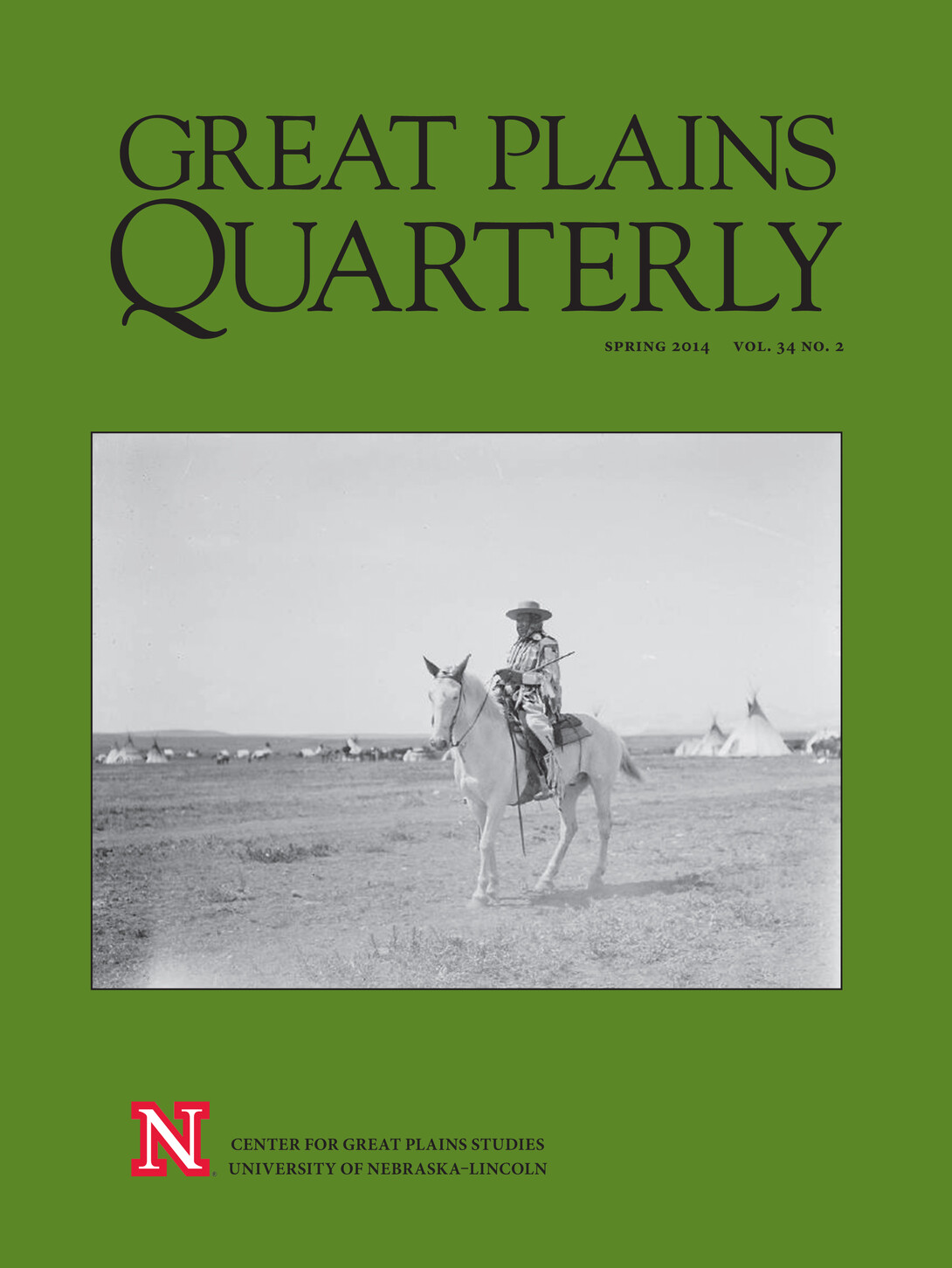
The spring issue of Great Plains Quarterly is available through the University of Nebraska Press and online via participating university libraries and Project MUSE.
In this issue, authors Alvina Pillai and Jeffrey Velez explain that in the late 19th century, the United States and Canada held very different views on how their laws would affect the Blackfoot tribe in the Great Plains. In 1877, the Blackfeet in Montana were allowed to judge their internal affairs — a sovereignty that slowly eroded over the next decade. The authors examine how criminal justice in the tribe differed according to country policy in “Avenues of Criminal Justice: The Blackfoot Confederacy from 1877 to 1889.”
The issue also includes an essay from Tom Gannon on growing up in a Catholic Indian boarding school in South Dakota in “Immigration as Cultural Imperialism: An Indian Boarding School Experience; or, ‘The Peer Gynt Suite’ and the Seventh Cavalry Cafe.”
A little-known aspect of American political history comes to light in Chris Maier’s “The Farmers’ Fight for Representation: Third-Party Politics in South Dakota, 1889-1918,” an account of how agriculture significantly affected South Dakota’s political culture.
The issue concludes with an in-depth look at noted rural America historian David Danbom. “An Interview of David Danbom, Historian of Rural America” by Jon K. Lauck reveals how Danbom became a driving force in his field.
Great Plains Quarterly is an academic journal published by the Center for Great Plains Studies at the University of Nebraska-Lincoln. For more information, go to http://www.unl.edu/plains.







